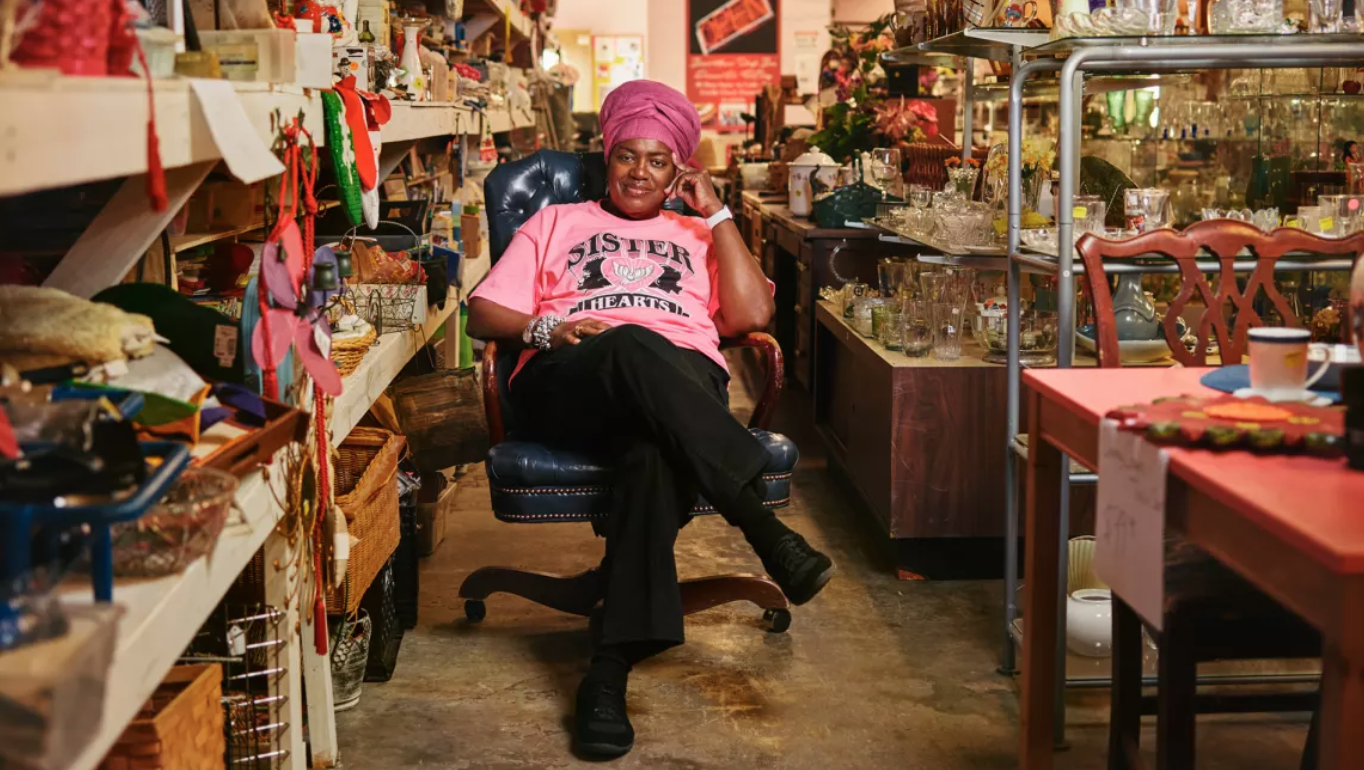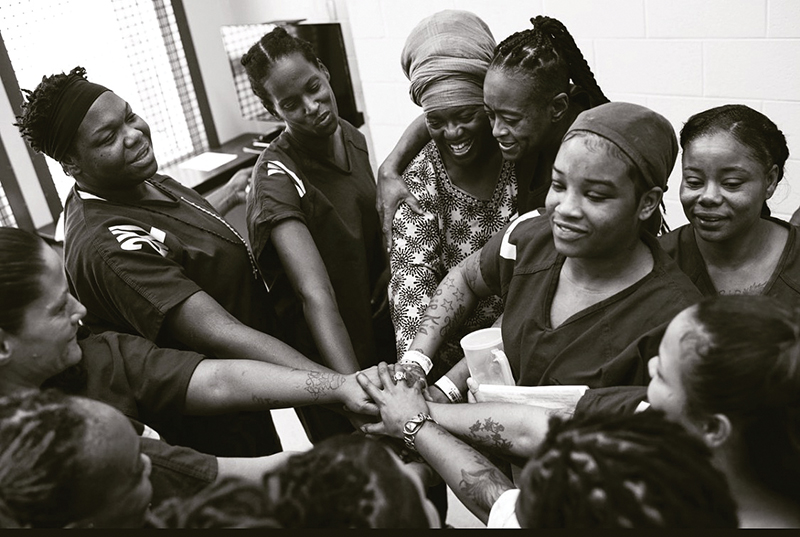Isn’t it funny that although making mistakes is common and normal, forgiving yourself and others is difficult? Something as simple as getting caught cheating on a test can establish distrust between a teacher and their student for the rest of their time together. Sharing a secret, you promised you wouldn’t causes others not to trust you, even if it only happened once. As humans, we hold grudges to protect ourselves, but do we genuinely believe it’s fair to identify others based on a single mistake? Does anyone genuinely deserve not to get their mistakes forgiven? Formerly incarcerated individuals face a brutal reality as they reenter society. They are disproportionately excluded from jobs, housing, and education, making it extremely difficult to become successful in any capacity. Although they have served their time, their ongoing title as ex-offenders makes their sentence feel infinite and their possibility of societal acceptance impossible. After facing the struggles of reentering society, New Orleans citizens Syrita Steib and Maryam Uloho find a pathway to success by bringing support to the formerly incarcerated community.

Headshot of Syrita Steib
(Image from the OR-nola.org)
After dropping out from Xavier University, New Orleans native Syrita Steib was arrested for stealing cars from a Texas car dealership and lighting the dealership on fire. At 19 years old, Steib was sentenced to ten years in prison and given a fine of $1.9 million in restitution. Steib recounts the inhumane ways she was treated in prison and how this left her feeling lonely and hopeless about her future. Though the conditions did not improve, about halfway through her sentence, Steib had a shift in mindset, making her determined to leave prison an improved version of herself. She began taking college courses and left prison with 30 credits. Upon reentering society, Steib faced challenges as her criminal record was tied to her name. In fact, before being accepted into school, Steib faced rejection after having to check a box on her application affirming her criminal record. However, she persevered, allowing her to graduate from UNO and eventually earn a B.S. from the Health Sciences Center at LSU. Unwilling to let her mistakes define her, Steib demonstrates immense resilience, leading her to a bright and successful future.
Although proud of her accomplishments, Steib remained frustrated with the way formerly incarcerated individuals are treated in society and the lack of preparation they receive before reentering. Steib created Operation Restoration (OR) to create change for her community. OR’s mission is to “build a community and support system for women impacted by incarceration through education.” OR provides life-changing opportunities, including employment training, GED instruction, access to college courses, and support in finding housing and paying rent. Additionally, the women at OR have access to mental health professionals to help relieve their trauma and progress their healing process. Steib, with the help of the OR community, is also an activist for laws and policies affecting formerly incarcerated individuals. Specifically, she successfully fought for the LA ACT 276, Ban the Box, removing the criminal record box from Louisiana college applications. Through the formation of OR and her active efforts to advocate for new legislation regarding criminal justice, Steib is shifting the way formerly incarcerated people are treated in society, giving them a more significant chance at a successful future.

Ms. Maryam Henderson-Uloho, founder of Sister Hearts Thrift Store, sitting in her shop. Photo courtesy of Sister Hearts Thrift Store.
In March of 2001, Maryam Uloho was sentenced to 13 years at the Louisiana Correctional Institute for Women. She shared with me her feelings of pain and isolation during an interview I had with her two years ago: “Prison doesn’t allow inmates to transition; they just release them. I didn’t know what to expect. I didn’t know what to do. I didn’t want to be around people. I didn’t know how to have conversations with people. I had a very no-nonsense type of attitude. They don’t prepare you for the real world at all. They don’t prepare you for rejection.” Upon reentering society, Uloho faced rejection after rejection, leaving her without a home and little clue on how she could progress in society. However, she began to ponder this rejection and think of ways to use it to her advantage. “In prison, they treat you like trash,” she explained. “I began to think of organizations like Goodwill and Salvation Army, billion-dollar industries that turned other people’s trash into treasure. Why couldn’t I do that?” Unwilling to let society’s judgement get in her way, Uloho set out on her venture to achieve success.
Starting with an old suitcase, Uloho began to sell used items off the side of the street, calling it her “mobile thrift store.” Uloho decided to transform her small business idea into something much more significant as she began to make more profit. Uloho opened Sister Hearts, a thrift store that employs formerly incarcerated individuals and provides them with transitional housing. Further, Uloho explains that by working at Sister Heart, individuals acquire the necessary skills to navigate society outside prison. She states, “Returning citizens are excellent entrepreneurs. We know how to make something out of nothing. We know how to take a dime and make it a dollar. We’re not depending on society to rehabilitate us. We have taken the reins to rehabilitate ourselves. We don’t feel helpless and powerless anymore. I want all returning citizens to know they matter. I want them to know that just because they’ve committed a crime, they’re no less of a human being.” Uloho helps individuals recognize their abilities and grow into people they are proud of. With her work, formerly incarcerated individuals find it in themselves to truly believe they are much more than their past mistakes.

Sister Hearts in action.
This piece was edited by Delia O’Brien as part of Professor Kelley Crawford’s Digital Civic Engagement course at Tulane University.
 NOLAbeings Multimedia artist Claire Bangser created NOLAbeings as a portrait-based story project that marries...
NOLAbeings Multimedia artist Claire Bangser created NOLAbeings as a portrait-based story project that marries...  Voodoo in New Orleans: Reviving history: New Orleans fortune telling This article takes a deep dive into the history of Voodoo in New Orleans, its hybridization with Catholicism, and its present-day place in the city's culture. The author visits fortune-tellers in the French Quarter, using their guidance as a tool for introspection rather than a deterministic predictor of the future. Through her experiences in New Orleans, the author feels a mystical connection to both the past and the future.
Voodoo in New Orleans: Reviving history: New Orleans fortune telling This article takes a deep dive into the history of Voodoo in New Orleans, its hybridization with Catholicism, and its present-day place in the city's culture. The author visits fortune-tellers in the French Quarter, using their guidance as a tool for introspection rather than a deterministic predictor of the future. Through her experiences in New Orleans, the author feels a mystical connection to both the past and the future. 